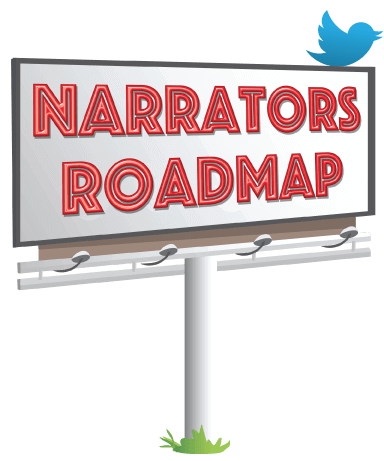The audiobook industry doesn’t have a “beginner” rate. The ACX union minimum, which is a professional rate, is $250 PFH to produce a retail-ready product. If you don’t feel your skills are at a level where you are comfortable charging that rate, you will want to get more training and do more volunteer and royalty share projects to gain experience.
If the book runs less than 1 hour, bill for one hour. Otherwise, invoice for the exact time. Enter the audiobook’s finished length in this time to decimal calculator. Multiply the resulting decimal number by your PFH rate to determine the cost.
_________________________________________________________________
Thanks to sound engineer Amanda Rose Smith for her permission to re-publish the following information that she originally posted on Facebook.
Let’s talk rates, people.
So, for context, for any new people who don’t know me, I’m not a narrator. I’m the head of a small pub’s audio department, and hire narrators on a regular basis.
Here’s the deal.
No one worth working for is going to be offering you $75 PFH. That’s not a thing. No successful business that you want to be associated with, or who will have any projects that you’d want people to see in your portfolio, is going to pay you that little.
Around $200 PFH is the BOTTOM of what you should be asking for, for clean, punch-recorded audio.
This does not include:
- mastering or editing (beyond the clean, punched audio)
- a proof listen against the script to catch errors
If you need to deliver final audio, you should be aiming for $250-300 PFH, at LEAST.
And just to pre-empt some questions and excuses that always come up —
1) “But I’m just starting out, and need experience!”
If you aren’t ready to do pro work, you’re not ready to be taking on ANY projects. There’s no “bad work” discount. If you’re doing bad work, you shouldn’t be doing paid work. Practice. Volunteer to read for blind people. Get coaching. Don’t put bad work out into the world for cheap.
2) “But no clients will pay that!”
Yes, they will. I am living proof of that. If you can’t find clients to pay those rates, you’re looking in the wrong place for work. A lot of successful ACX narrators bring their own authors onto the platform. Look into that. Or get some business coaching. Marketing yourself and networking are separate skills from narrating
3) “Mind your own business. If you don’t want to work for the rates I work for, charge higher, and let me charge what I want!”
Oh, alas, if only we all worked in a vacuum. But we don’t. Every time you take less than a living wage, you’re telling your client that’s okay, and that’s what they should pay everyone. You’re hurting your colleagues just as much as you’re hurting yourself.
4) “Well, at least it’s better than working for free with RS!”
RS isnt supposed to be free. If you’re not getting paid for any of your RS titles, you’re doing that wrong, too. It’s not free work, and it’s not a total gamble. You shouldn’t be taking RS titles that you don’t have some reason to believe will make your standard PFH rate, at minimum, over time.
Look — If you come at a career from a place of scarcity, you’ll always lose. No one values people who don’t value themselves — and why should they?
You know yourself best. If you think you’re worth less, I’m going to believe you.
Joining this field doesn’t come easy, and it doesn’t come quickly. It’s ok to spend a few months or more, just training and learning, before going all in.
And if you do it right, you’ll be up and running within a year. I’ve seen it happen over and over and over again.
It’s not magic or rocket science or luck. It’s just starting a business thoughtfully.
Other resources on this topic:
- This article and its comments provide additional explanation about the formula for estimating finished time, the work involved in producing a finished hour, and considerations for your rate calculations.
- Royalty share contracts are a deferred payment for the cost of production, which is paid through the royalties earned on the audiobook. While some of the info in this article and its comments are dated, you can learn some ways to improve your chances of earning your fee over time through RS contracts.
- You’ll find several more useful articles about RS in the Payment Options and Narrators Views About Royalty Share Projects section of my AudioForAuthors.com page.
- Narrator and casting director Tanya Eby discusses rates in these 2 articles:
- You may want to look into some business coaching from one of the pros listed in the Coaches Directory in Audiobook Village.








